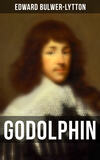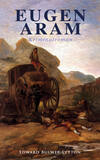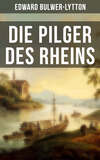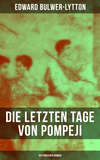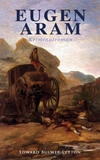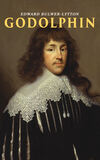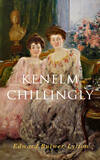Kitabı oku: «Ernest Maltravers — Volume 05»
BOOK V
PARODY.
My hero, turned author, lies mute in this section,
You may pass by the place if you're bored by reflection:
But if honest enough to be fond of the Muse,
Stay, and read where you're able, and sleep where you choose.
THEOC. /Epig. in Hippon/.
CHAPTER I
"My genius spreads her wing,
And flies where Britain courts the western spring.
* * * * *
Pride in their port, defiance in their eye,
I see the lords of human kind pass by,
Intent on high designs."
-GOLDSMITH.
I HAVE no respect for the Englishman who re-enters London after long residence abroad without a pulse that beats quick and a heart that heaves high. The public buildings are few, and, for the most part, mean; the monuments of antiquity not comparable to those which the pettiest town in Italy can boast of; the palaces are sad rubbish; the houses of our peers and princes are shabby and shapeless heaps of brick. But what of all this? the spirit of London is in her thoroughfares—her population! What wealth—what cleanliness—what order—what animation! How majestic, and yet how vivid, is the life that runs through her myriad veins! How, as the lamps blaze upon you at night, and street after street glides by your wheels, each so regular in its symmetry, so equal in its civilization—how all speak of the CITY OF FREEMEN.
Yes, Maltravers felt his heart swell within him as the post-horses whirled on his dingy carriage—over Westminster Bridge—along Whitehall—through Regent Street—towards one of the quiet and private-house-like hotels that are scattered round the neighbourhood of Grosvenor Square.
Ernest's arrival had been expected. He had written from Paris to Cleveland to announce it; and Cleveland had, in reply, informed him that he had engaged apartments for him at Mivart's. The smiling waiters ushered him into a spacious and well-aired room—the armchair was already wheeled by the fire—a score or so of letters strewed the table, together with two of the evening papers. And how eloquently of busy England do those evening papers speak! A stranger might have felt that he wanted no friend to welcome him—the whole room smiled on him a welcome.
Maltravers ordered his dinner and opened his letters: they were of no importance; one from his steward, one from his banker, another about the county races, a fourth from a man he had never heard of, requesting the vote and powerful interest of Mr. Maltravers for the county of B———, should the rumour of a dissolution be verified; the unknown candidate referred Mr. Maltravers to his "well-known public character." From these epistles Ernest turned impatiently, and perceived a little three-cornered note which had hitherto escaped his attention. It was from Cleveland, intimating that he was in town; that his health still precluded his going out, but that he trusted to see his dear Ernest as soon as he arrived.
Maltravers was delighted at the prospect of passing his evening so agreeably; he soon despatched his dinner and his newspapers, and walked in the brilliant lamplight of a clear frosty evening of early December in London, to his friend's house in Curzon Street: a small house, bachelor-like and unpretending; for Cleveland spent his moderate though easy fortune almost entirely at his country villa. The familiar face of the old valet greeted Ernest at the door, and he only paused to hear that his guardian was nearly recovered to his usual health, ere he was in the cheerful drawing-room, and—since Englishmen do not embrace—returning the cordial gripe of the kindly Cleveland.
"Well, my dear Ernest," said Cleveland, after they had gone through the preliminary round of questions and answers, "here you are at last: Heaven be praised; and how well you are looking—how much you are improved! It is an excellent period of the year for your /debut/ in London. I shall have time to make you intimate with people before the whirl of 'the season' commences."
"Why, I thought of going to Burleigh, my country-place. I have not seen it since I was a child."
"No, no! you have had solitude enough at Como, if I may trust to your letter; you must now mix with the great London world; and you will enjoy Burleigh the more in the summer."
"I fancy this great London world will give me very little pleasure; it may be pleasant enough to young men just let loose from college, but your crowded ball-rooms and monotonous clubs will be wearisome to one who has grown fastidious before his time. /J'ai vecu beaucoup dans peu d'annees. I have drawn in youth too much upon the capital of existence to be highly delighted with the ostentatious parsimony with which our great men economise pleasure."
"Don't judge before you have gone through the trial," said Cleveland: "there is something in the opulent splendour, the thoroughly sustained magnificence, with which the leaders of English fashion conduct even the most insipid amusements, that is above contempt. Besides, you need not necessarily live with the butterflies. There are plenty of bees that will be very happy to make your acquaintance. Add to this, my dear Ernest, the pleasure of being made of—of being of importance in your own country. For you are young, well-born, and sufficiently handsome to be an object of interest to mothers and to daughters; while your name, and property, and interest, will make you courted by men who want to borrow your money and obtain your influence in your county. No, Maltravers, stay in London—amuse yourself your first year, and decide on your occupation and career the next; but reconnoitre before you give battle."
Maltravers was not ill-pleased to follow his friend's advice, since by so doing he obtained his friend's guidance and society. Moreover, he deemed it wise and rational to see, face to face, the eminent men in England, with whom, if he fulfilled his promise to De Montaigne, he was to run the race of honourable rivalry. Accordingly, he consented to Cleveland's propositions.
"And have you," said he, hesitating, as he loitered by the door after the stroke of twelve had warned him to take his leave—"have you never heard anything of my—my—the unfortunate Alice Darvil?"
"Who?—Oh, that poor young woman; I remember!—not a syllable."
Maltravers sighed deeply and departed.
CHAPTER II
ERNEST MALTRAVERS was now fairly launched upon the wide ocean of London. Amongst his other property was a house in Seamore Place—that quiet, yet central street, which enjoys the air without the dust of the park. It had been hitherto let, and, the tenant now quitting very opportunely, Maltravers was delighted to secure so pleasant a residence: for he was still romantic enough to desire to look out upon trees and verdure rather than brick houses. He indulged only in two other luxuries: his love of music tempted him to an opera-box, and he had that English feeling which prides itself in the possession of beautiful horses,—a feeling that enticed him into an extravagance on this head that baffled the competition and excited the envy of much richer men. But four thousand a year goes a great way with a single man who does not gamble, and is too philosophical to make superfluities wants.
The world doubled his income, magnified his old country-seat into a superb chateau, and discovered that his elder brother, who was only three or four years older than himself, had no children. The world was very courteous to Ernest Maltravers.
It was, as Cleveland said, just at that time of year when people are at leisure to make new acquaintances. A few only of the most difficult houses in town were open; and their doors were cheerfully expanded to the accomplished ward of the popular Cleveland. Authors and statesmen, and orators, and philosophers—to all he was presented;—all seemed pleased with him, and Ernest became the fashion before he was conscious of the distinction. But he had rightly foreboded. He had commenced life too soon; he was disappointed; he found some persons he could admire, some whom he could like, but none with whom he could grow intimate, or for whom he could feel an interest. Neither his heart nor his imagination was touched; all appeared to him like artificial machines; he was discontented with things like life, but in which something or other was wanting. He more than ever recalled the brilliant graces of Valerie de Ventadour, which had thrown a charm over the most frivolous circles; he even missed the perverse and fantastic vanity of Castruccio. The mediocre poet seemed to him at least less mediocre than the worldlings about him. Nay, even the selfish good spirits and dry shrewdness of Lumley Ferrers would have been an acceptable change to the dull polish and unrevealed egotism of jealous wits and party politicians. "If these are the flowers of the parterre, what must be the weeds?" said Maltravers to himself, returning from a party at which he had met half a score of the most orthodox lions.
He began to feel the aching pain of satiety.
But the winter glided away—the season commenced, and Maltravers was whirled on with the rest into the bubbling vortex.
CHAPTER III
"And crowds commencing mere vexation,
Retirement sent its invitation."
—SHENSTONE.
THE tench, no doubt, considers the pond in which he lives as the Great World. There is no place, however stagnant, which is not the great world to the creatures that move about, in it. People who have lived all their lives in a village still talk of the world as if they had ever seen it! An old woman in a hovel does not put her nose out of her door on a Sunday without thinking she is going amongst the pomps and vanities of the great world. /Ergo/, the great world is to all of us the little circle in which we live. But as fine people set the fashion, so the circle of fine people is called the Great World /par excellence/. Now this great world is not a bad thing when we thoroughly understand it; and the London great world is at least as good as any other. But then we scarcely do understand that or anything else in our /beaux jours/,—which, if they are sometimes the most exquisite, are also often the most melancholy and the most wasted portion of our life. Maltravers had not yet found out either /the set/ that pleased him or the species of amusement that really amused. Therefore he drifted on and about the vast whirlpool, making plenty of friends—going to balls and dinners—and bored with both as men are who have no object in society. Now the way society is enjoyed is to have a pursuit, a /metier/ of some kind, and then to go into the world, either to make the individual object a social pleasure, or to obtain a reprieve from some toilsome avocation. Thus, if you are a politician—politics at once make an object in your closet, and a social tie between others and yourself when you are in the world. The same may be said of literature, though in a less degree; and though, as fewer persons care about literature than politics, your companions must be more select. If you are very young, you are fond of dancing; if you are very profligate, perhaps you are fond of flirtations with your friend's wife. These last are objects in their way: but they don't last long, and, even with the most frivolous, are not occupations that satisfy the whole mind and heart, in which there is generally an aspiration after something useful. It is not vanity alone that makes a man of the /mode/ invent a new bit or give his name to a new kind of carriage; it is the influence of that mystic yearning after utility, which is one of the master-ties between the individual and the species.
Maltravers was not happy—that is a lot common enough; but he was not amused—and that is a sentence more insupportable. He lost a great part of his sympathy with Cleveland, for, when a man is not amused, he feels an involuntary contempt for those who are. He fancies they are pleased with trifles which his superior wisdom is compelled to disdain. Cleveland was of that age when we generally grow social—for by being rubbed long and often against the great loadstone of society, we obtain, in a thousand little minute points, an attraction in common with our fellows. Their petty sorrows and small joys—their objects of interest or employment, at some time or other have been ours. We gather up a vast collection of moral and mental farthings of exchange: and we scarcely find any intellect too poor, but what we can deal with it in some way. But in youth, we are egotists and sentimentalists, and Maltravers belonged to the fraternity who employ
"The heart in passion and the head in rhymes."
At length—just when London begins to grow most pleasant—when flirtations become tender, and water-parties numerous—when birds sing in the groves of Richmond, and whitebait refresh the statesman by the shores of Greenwich,—Maltravers abruptly fled from the gay metropolis, and arrived, one lovely evening in July, at his own ivy-grown porch of Burleigh.
What a soft, fresh, delicious evening it was! He had quitted his carriage at the lodge, and followed it across the small but picturesque park alone and on foot. He had not seen the place since childhood—he had quite forgotten its aspect. He now wondered how he could have lived anywhere else. The trees did not stand in stately avenues, nor did the antlers of the deer wave above the sombre fern; it was not the domain of a grand seigneur, but of an old, long-descended English squire. Antiquity spoke in the moss-grown palings in the shadowy groves, in the sharp gable-ends and heavy mullions of the house, as it now came in view, at the base of a hill covered with wood—and partially veiled by the shrubs of the neglected pleasure-ground, separated from the park by the invisible ha-ha. There, gleamed in the twilight the watery face of the oblong fish-pool, with its old-fashioned willows at each corner—there, grey and quaint, was the monastic dial—and there was the long terrace walk, with discoloured and broken vases, now filled with the orange or the aloe, which, in honour of his master's arrival, the gardener had extracted from the dilapidated green-house. The very evidence of neglect around, the very weeds and grass on the half-obliterated road, touched Maltravers with a sort of pitying and remorseful affection for his calm and sequestered residence. And it was not with his usual proud step and erect crest that he passed from the porch to the solitary library, through a line of his servants:—the two or three old retainers belonging to the place were utterly unfamiliar to him, and they had no smile for their stranger lord.
In the school of the world, as in that of love, it is necessary to begin by practising what we wish to learn.
[Закрыть]
I find that it is a folly to wish to study the world like a simple spectator.
[Закрыть]













